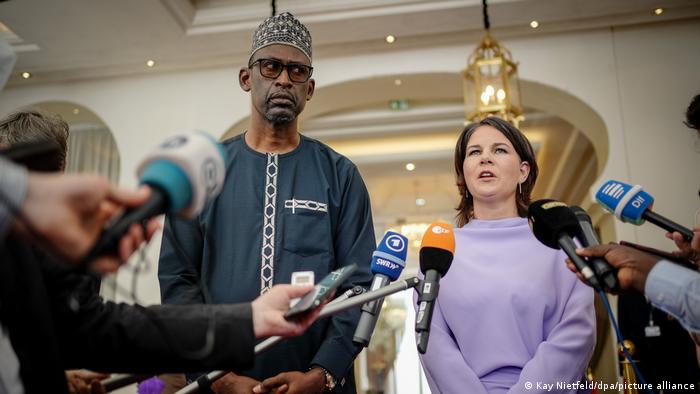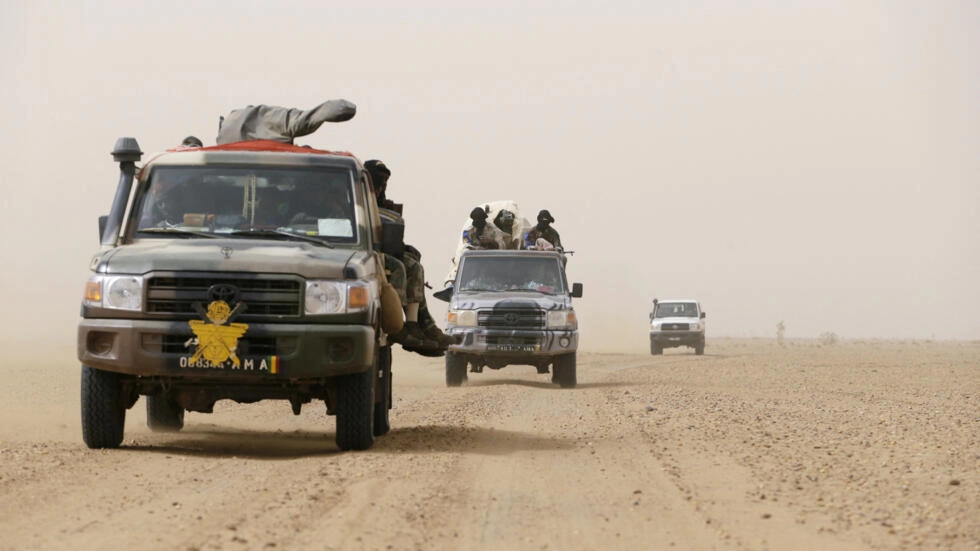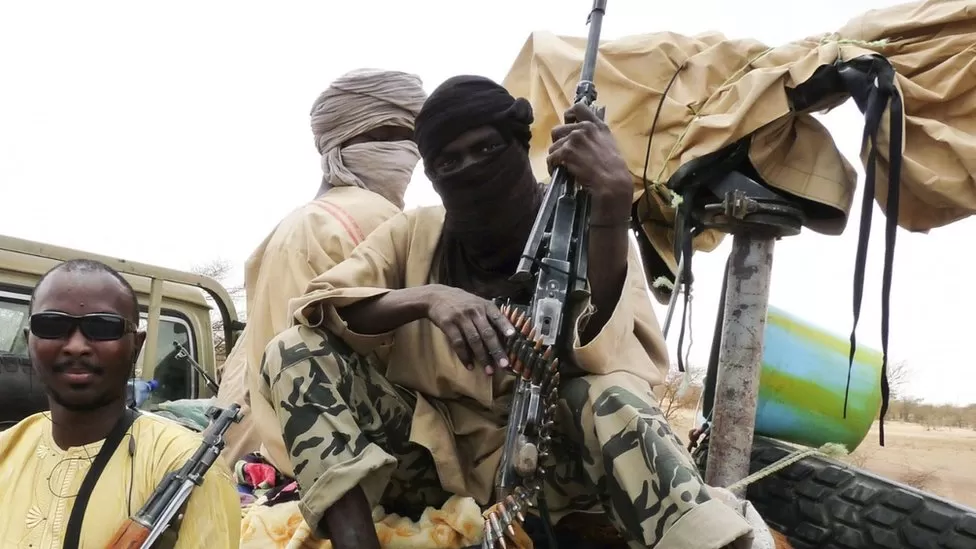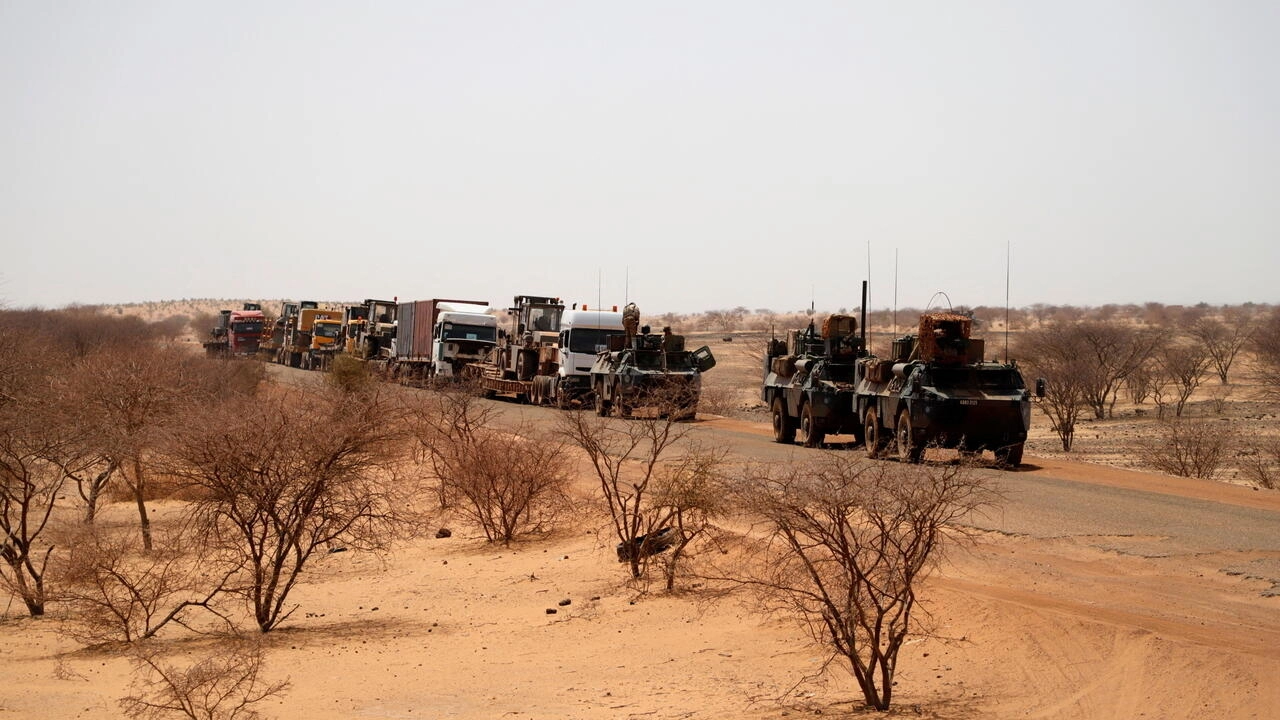This article is more than
2 year oldOpinion: Europe must maintain relations with Mali

First there were whispers, then there were rumors, and now it's finally been confirmed: The EU will stop training Malian army personnel and the National Guard — and it's right to do so.
For months there has been serious doubt over the sincerity and transparency of the Malian transitional government's policies. Since the military coup d'etat, there have been no signs that the army is interested in returning the country to democracy anytime soon. All efforts by the West African trade bloc ECOWAS and the international community have run aground. The relationship between Mali and former colonial power France is at an all-time low.
In contrast, Mali's cooperation with Russia seems to be running smoothly. The military government denies it is working with Russian mercenaries affiliated to the Wagner Group, claiming instead the Russians are acting only in a military training capacity. However, there are numerous indications proving the presence of the Wagner Group in Mali. In many quarters, the Wagner Group has been described as the private army of Yevgeniy Prigozhin, a friend of Russian President Vladimir Putin.
The recent atrocities against Malian civilians and current images from Ukraine give an indication of what these soldiers and the regular Russian army are capable of doing. As long as the Malian transitional government's cozy relationship with Russian mercenaries continues, the EU should not train Malian soldiers or security forces.
A different form of help
However, it is critical that the EU does not completely end its activities in Mali. Instead, the bloc should continue to advise security forces and train them on the rules of warfare in the interests of observing human rights.
Even before the coups of 2020 and 2021, the UN and civil society organizations accused the Malian armed forces (Forces armees maliennes, FAMa) of human rights abuses. Only the frequency and brutality have increased. Recently, during a major military operation against alleged terrorists in the town of Moura 200 people were killed, including many civilians.
Survivors told DW that they were arbitrarily arrested and held for days. Eyewitnesses say others were shot in the back. Multiple survivors also spoke of "white soldiers" or even explicitly mentioned Russians who took part in the executions.
The military regime in Mali initially denied the claims, but then announced an investigation into the incident — possibly to send a positive signal or as an attempt to stifle local discontent. So far, the military government of President Assimi Goita has managed to maintain popular support. With the use of propaganda and trolls, anti-Western sentiment has gained traction. Still, the investigation will not be independent because of Russia's position in the UN Security Council.

Germany's strong relationship with Mali
German Foreign Minister Annalena Baerbock's visit to Mali, is therefore timely and sends a strong signal, because talking to Mali's new rulers is crucial. Despite the good work between Germany and France in Europe, Germany should emancipate its foreign policy strategies in Africa from French interests and not make the mistake of letting France take the lead in french-speaking Africa.
French interests and influence in that region of Africa are numerous, and Germany should not ignore them. As it is, you already get the impression that you're in Paris rather than Bamako or Niamey when you fill up your Renault at a Total gas station; make phone calls over the Orange cell network, or shop at Carrefour. And those are just the most visible French brands.

Germany has a better reputation in Mali than France and has been perceived as a key ally ever since it recognized Mali's independence. Baerbock should use this advantage to convince Mali's government that Russia's assistance comes at a cost, and that it risks entering into new form of dependency: One that will trample on the human rights of ordinary Malians.
This piece was originally written in German.
Keywords
Newer articles
<p>Diddy's homes were recently raided in Los Angeles and Miami by Homeland Security.</p>
India calls for ‘immediate de-escalation’ amid Israel-Iran tensions
Why Israel is risking a dramatic escalation with Iran
Iron Dome, David’s Sling, Arrow: Israel’s air defense against Iran, explained
Israel’s War Leaders Don’t Trust One Another
Bianca Censori stuns in extreme v-neck dress
OJ Simpson to be cremated and no plans to donate brain to science, lawyer says
US helped Israel take down ‘nearly all’ Iranian drones and missiles – Biden
‘Their tactics have changed’: Russia’s bid to blow apart Ukraine’s power grid
Russia's meat grinder soldiers - 50,000 confirmed dead




